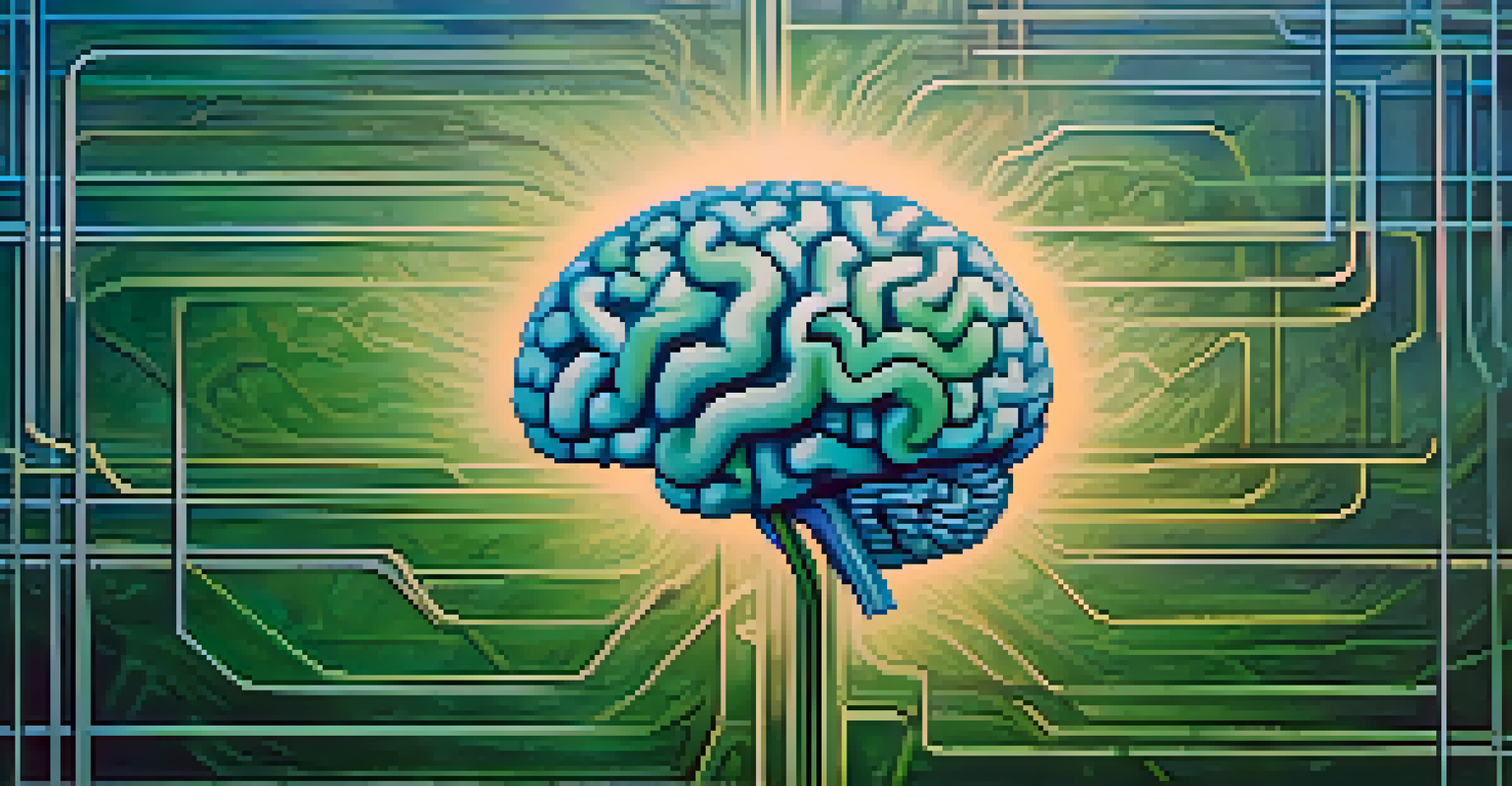Exploring the Link Between Mental Health and Addiction

Defining Mental Health and Addiction: A Brief Overview
Mental health encompasses our emotional, psychological, and social well-being. It affects how we think, feel, and act in daily life. On the other hand, addiction is characterized by compulsive engagement in rewarding stimuli, despite adverse consequences.
Mental health is not a destination, but a process. It's about how you drive, not where you're going.
Both mental health disorders and addiction can lead to significant impairments in an individual's ability to function. When these issues overlap, they can create a complex web that is challenging to untangle. Understanding this relationship is crucial for effective treatment.
For instance, someone suffering from anxiety might turn to alcohol for relief, leading to a cycle of dependence. Thus, recognizing how these two aspects interact is essential for promoting better health outcomes.
The Bi-Directional Relationship Between Mental Health and Addiction
The relationship between mental health and addiction is often bi-directional, meaning each can influence the other. For example, a person with depression might self-medicate with drugs, which can exacerbate their mental health issues. This cycle can make recovery more difficult.

Conversely, addiction can lead to the development of mental health disorders. The stress and lifestyle associated with substance abuse can trigger anxiety or depression. Therefore, addressing both issues simultaneously is essential for successful treatment.
Mental Health and Addiction Interlinked
The relationship between mental health and addiction is bi-directional, where each can influence and exacerbate the other.
This interconnection highlights the importance of a holistic approach in therapy, where both mental health and addiction are treated as intertwined problems rather than isolated conditions.
Common Mental Health Disorders Associated with Addiction
Several mental health disorders are frequently linked to addiction, including depression, anxiety, and PTSD. These conditions can drive individuals to seek relief through substance use, creating a dangerous cycle. For instance, someone with PTSD may use drugs to numb their distressing memories.
Addiction is a family disease. One person may use, but the whole family suffers.
Moreover, each disorder can manifest differently in individuals, making it essential to understand the unique interplay at work. This variability can complicate diagnoses, as symptoms of addiction and mental health issues may overlap.
Recognizing these associations is a vital step for healthcare providers in devising effective treatment plans tailored to the individual's needs.
The Role of Genetics in Mental Health and Addiction
Genetics can play a significant role in both mental health and addiction, influencing an individual's vulnerability to these issues. For example, family history of addiction may increase the likelihood of developing substance use disorders. Similarly, certain genetic markers can predispose individuals to mental health disorders.
However, genetics alone does not determine fate. Environmental factors, such as stress and trauma, also contribute significantly to the development of both mental health conditions and addiction. This interaction emphasizes the need for a comprehensive understanding of an individual’s background.
Genetics and Environment Matter
Both genetics and environmental factors play a crucial role in an individual's vulnerability to mental health disorders and addiction.
Ultimately, recognizing the genetic component can enhance preventative measures and treatment strategies, allowing for personalized approaches that consider both inherited traits and life experiences.
Impact of Socioeconomic Factors on Mental Health and Addiction
Socioeconomic factors greatly influence both mental health and addiction. Low income, lack of education, and limited access to healthcare can exacerbate mental health issues and increase the risk of substance abuse. This connection highlights the broader societal implications of these issues.
For instance, individuals living in poverty may face higher stress levels, leading to increased rates of anxiety and depression, which can subsequently lead to addiction. Conversely, those with stable economic conditions may have better access to resources for managing their mental health.
Addressing these socioeconomic disparities is crucial for effective intervention strategies that support vulnerable populations and promote overall well-being.
The Importance of Integrated Treatment Approaches
Integrated treatment approaches that address both mental health and addiction are essential for effective recovery. By treating the two simultaneously, healthcare providers can tackle the root causes and improve overall outcomes. This approach recognizes that treating one condition without addressing the other may lead to relapse.
For example, cognitive behavioral therapy (CBT) can be beneficial for both mental health disorders and addiction. This therapy helps individuals understand their thoughts and behaviors, empowering them to make healthier choices.
Integrated Treatment is Key
Addressing both mental health and addiction simultaneously through integrated treatment approaches promotes more effective recovery.
Such holistic methods foster a comprehensive recovery journey, providing individuals with the tools they need to manage both their mental health and addiction effectively.
Support Systems: Their Role in Recovery
Support systems play a critical role in the recovery process for individuals facing mental health and addiction challenges. Family, friends, and support groups can provide emotional backing and encouragement, creating a safety net during difficult times. This social support can significantly improve treatment outcomes.
Sharing experiences with others who have faced similar struggles can foster a sense of community and understanding. Support groups, such as Alcoholics Anonymous or therapy groups for mental health, allow individuals to connect and share coping strategies.

Ultimately, having a strong support network can make a significant difference in the recovery journey, helping individuals feel less isolated and more empowered to overcome their challenges.